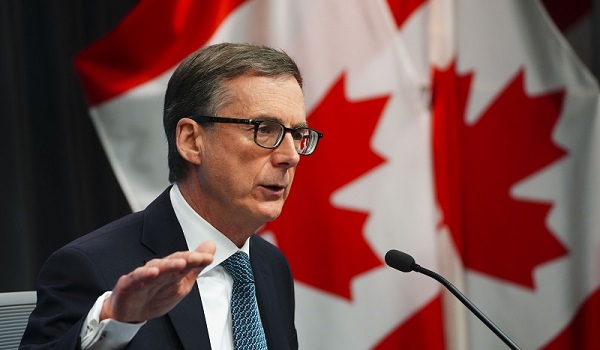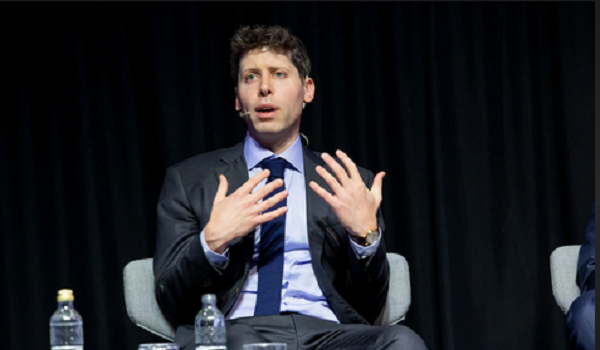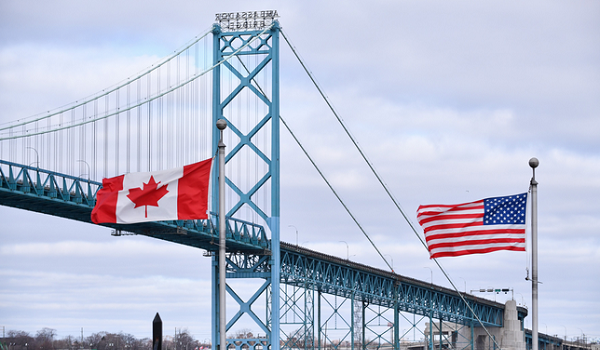Effects of tariff threats already hitting Canada’s economy, Macklem says
The United States’ threatened tariffs on Canada and Mexico are already weighing on both countries’ economies, and prolonged uncertainty could exacerbate the effects, Bank of Canada Governor Tiff Macklem said Thursday.
“President Donald Trump’s threats of new tariffs are already affecting business and household confidence, particularly in Canada and Mexico,” Mr. Macklem said in prepared remarks delivered virtually to a Bank for International Settlements conference in Mexico City. “The longer this uncertainty persists, the more it will weigh on economic activity in our countries.”
These were Mr. Macklem’s first public comments since the U.S., on Monday, granted a 30-day delay to sweeping tariffs on imports from Canada and Mexico.
“If significant broad-based tariffs are indeed imposed, they will test the resilience of our economies in the short run and reduce long-run prosperity,” he added.
“Tariffs mean economies work less efficiently. There will be less investment and lower productivity. That means our countries will produce less and earn less. Monetary policy can’t change that.”
Mr. Macklem’s comments echoed those of last week, when the Bank of Canada cut its policy interest rate by a quarter-point to 3 per cent. At the time, the Governor said the threat of tariffs had “weighed on” the bank’s decision to cut rates for a sixth consecutive time.
Alongside its rate decision, the Bank of Canada updated its economic forecasts, but did not incorporate tariffs into its calculations, given the uncertainty of U.S. policies.
However, the central bank did publish several scenarios that show how a trade war could transmit through the economy.
In the “benchmark” scenario, if the U.S. imposed 25-per-cent tariffs on all imports, and its trading partners retaliated in kind, Canada’s GDP growth would be roughly 2.5 percentage points lower than otherwise in the first year, and 1.5 percentage points lower in the second year.
Consumer prices would be higher than forecast, because retaliatory tariffs would get passed on to consumers, while a weaker loonie would drive up import costs.
This would put the Bank of Canada in a tough position. Weak growth and faster inflation typically necessitate different responses from the central bank.
“With a single instrument – our policy interest rate – central banks can’t lean against weaker output and higher inflation at the same time,” Mr. Macklem explained in Thursday’s speech. “So we will need to carefully assess the downward pressure on inflation from weaker economic activity, and weigh that against the upward pressures from higher input prices and supply chain disruptions.”
Mr. Macklem said Thursday that rising protectionism would add to other vulnerabilities facing the global economy, including higher long-term interest rates, elevated government debt and lacklustre productivity.
Investors in interest rate swaps are expecting the Bank of Canada to cut rates two or three more times this year.
But in a trade-war scenario, many analysts on Bay Street see the bank cutting to a greater degree.
Mr. Macklem said Thursday that central banks will be faced with “harder choices” in a world with “more negative supply shocks,” potentially leading to public disappointment.
“We will face criticism about our decisions – and about how well monetary policy is seen to have worked when confronted with forces that are mostly out of our hands,” he said. “We will be called ineffective or criticized for not doing enough.”
Mr. Macklem’s speech struck “a cautious tone regarding how much easing the Bank of Canada is willing to deliver if significant broad-based tariffs are applied,” said Royce Mendes, head of macro strategy at Desjardins Securities, in a note to clients.
“While no one should expect monetary policymakers to cut rates as much as they would in a typical recession because of the countervailing pressures on inflation, his mention of public disappointment and frustration might raise some eyebrows,” Mr. Mendes added.
This article was first reported by The Globe and Mail













